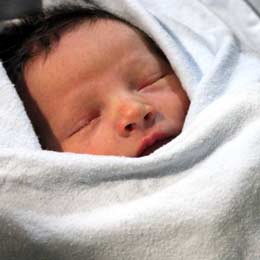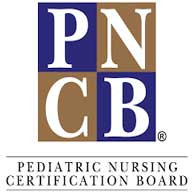Chickenpox (also called varicella) is a common childhood disease. It is usually mild, but it can be serious, especially in young infants and adults.
Chickenpox (also called varicella) is a common childhood disease. It is usually mild, but it can be serious, especially in young infants and adults.
Why get your child vaccinated?
Chickenpox is a very contagious disease caused by the varicella-zoster virus (VZV). It causes a blister-like rash, itching, tiredness, and fever. Chickenpox used to be very common in the United States. Each year, chickenpox caused about 4 million cases, about 10,600 hospitalizations and 100 to 150 deaths.
Before the vaccine, about 11,000 people were hospitalized for chickenpox each year in the United States. Before the vaccine, about 100 people died each year as a result of chickenpox in the United States.
When should your child get the vzv vaccine?
Routine Children who have never had chickenpox should get 2 doses of chickenpox vaccine at these ages:
- 1st Dose: 12-15 months of age
- 2nd Dose: 4-6 years of age (may be given earlier, if at least 3 months after the 1st dose)
People 13 years of age and older (who have never had chickenpox or received chickenpox vaccine) should get two doses at least 28 days apart.
Chickepox Vaccination Catch-up
Anyone who is not fully vaccinated, and never had chickenpox, should receive one or two doses of chickenpox vaccine. The timing of these doses depends on the person’s age. Ask your personal care provider. Chickenpox vaccine may be given at the same time as other vaccines.
Note: A Combination vaccine called MMRV, which contains both chickenpox and MMR vaccines, may be given instead of the two individual vaccines to people 12 years of age and younger.
Other Routine Immunizations We Provide
- Diphtheria, Tetanus, and Pertussis (DTaP)
Diphtheria, tetanus, and pertussis are serious diseases caused by bacteria. Diphtheria and pertussis are spread from person to person. Tetanus enters the body through cuts or wounds.
- Hepatitis A
Hepatitis A is a serious liver disease caused by the hepatitis A virus (HAV). HAV is spread from person to person through contact with the feces (stool) of people who are infected, which can easily happen if someone does not wash his or her hands properly.
- Hepatitis B
Hepatitis B is a serious disease that affects the liver. It is caused by the hepatitis B virus. Hepatitis B can cause mild illness lasting a few weeks, or it can lead to a serious, lifelong illness.
- Hib (Haemophilus Influenzae Type B)
Haemophilus influenzae type b (Hib) disease is a serious disease caused by bacteria. It usually affects children under 5 years old. It can also affect adults with certain medical conditions.
- HPV
HPV vaccine prevents infection with human papillomavirus (HPV) types that are associated with many cancers.
- Influenza – Inactivated
Influenza or “flu” is a contagious disease that spreads around the United States every year, usually between October and May.
- Measles, Mumps, Rubella (MMR)
Measles, Mumps, Rubella, and Varicella (chickenpox) can be serious diseases. These diseases can spread from person to person through the air. Varicella can also be spread through contact with fluid from chickenpox blisters.
- Measles, Mumps, Rubella & Varicella (MMRV)
Measles, Mumps, Rubella, and Varicella (chickenpox) can be serious diseases. These diseases can spread from person to person through the air. Varicella can also be spread through contact with fluid from chickenpox blisters.
- Meningococcal Conjugate Vaccines (MCV)
Meningococcal disease is a serious illness caused by a type of bacteria called Neisseria meningitidis. It can lead to meningitis (infection of the lining of the brain and spinal cord) and infections of the blood.
- Serogroup B Meningococcal (MenB)
Meningococcal disease is a serious illness caused by a type of bacteria called Neisseria meningitidis. It can lead to meningitis (infection of the lining of the brain and spinal cord) and infections of the blood.
- Pneumococcal Conjugate (PCV13)
Pneumococcal disease is caused by bacteria that can spread from person to person through close contact. It can cause ear infections, and it can also lead to more serious infections .
- Polio
Polio is a disease caused by a virus. It is spread mainly by person-to-person contact. It can also be spread by consuming food or drinks that are contaminated with the feces of an infected person.
- Rotavirus
Rotavirus is a virus that causes diarrhea, mostly in babies and young children. The diarrhea can be severe, and lead to dehydration.
- Tdap (Tetanus, Diphtheria, Pertussis)
Tetanus, diphtheria, and pertussis are very serious diseases. Tdap vaccine given to pregnant women can protect newborn babies against pertussis.
- Varicella (Chickenpox)
Chickenpox (also called varicella) is a common childhood disease. It is usually mild, but it can be serious, especially in young infants and adults.
Immunization Schedules from the CDC
Easy-to-read formats to print, tools to download, and ways to prepare for your office visit.

















